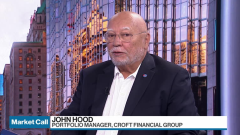Feb 1, 2022
Oil holds near seven-year high ahead of OPEC+ decision on output
, Bloomberg News
Buy dips in energy 'all day long' because fundamentals look compelling: Energy investor
Oil steadied as investors await a meeting of OPEC and its allies this week to decide how much production the group will add, while Exxon Mobil Corp. said it expects to increase output in the Permian Basin by 25 per cent this year.
West Texas Intermediate futures closed above US$88 a barrel on Tuesday. Most analysts expect expect OPEC+ to maintain modest supply increases, but Goldman Sachs Group Inc. warned the recent price surge could mean the group will deliver more than expected. Traders are also watching an arctic blast set to hit Texas this week that may freeze oil and natural gas production areas, potentially causing another supply shock.
Crude’s recent surge has been supported by a tight global market and geopolitical concerns over Ukraine, even though Russia has denied it plans to attack its neighbor.

Demand signals and the risk of an escalating Russia-Ukraine crisis are likely to be discussed by the Organization of Petroleum Exporting Countries and its allies when they convene on Wednesday. The group is expected to ratify another 400,000 barrel-a-day increase for March, although there have been signs in recent months the alliance has not met its production target in full.
Meanwhile on Tuesday, Exxon reported that it will boost spending on new oil wells and other projects after posting the biggest profit in almost eight years.
Exxon’s report is a turning point for the company and indicative of shift in the industry, said Ed Moya, Oanda’s senior market analyst for the Americas. “The ceiling for oil prices further out will be a lot lower as oil giants will take advantage of these high prices.”
The wintry weather headed for Texas so far looks less likely to lead to a repeat of last February’s cold snap that triggered catastrophic blackouts and left more than 200 people dead.
Prices
- WTI for March delivery rose 5 cents to settle at US$88.20 a barrel
- Brent for April dropped 10 cents to US$89.16 a barrel
Oil has roared higher over the past year as energy consumption continues to bounce back from the hit caused by the pandemic. That’s depleted inventories and underpinned a bullish backwardated pricing structure, with near-term contracts commanding a premium to those further out. Banks including Goldman Sachs have forecast crude will hit US$100 a barrel this year.
Despite its warning about an surprise OPEC+ move on production, Goldman Sachs said it remained bullish on oil. Stockpiles are “incredibly tight,” and given the strength of demand there’s a need for sharply higher prices, the bank’s analysts wrote in a Jan. 31 note.
Related coverage:
- Mabanaft said it was the victim of a cyberattack that has disrupted the delivery of fuels across Germany.
- China looks set to receive significantly less crude at its ports in the next few weeks.
- TotalEnergies SE and its partners reached a final investment decision worth over US$10 billion to produce Uganda’s oil discoveries and build a pipeline that will turn the landlocked East African nation into a significant crude exporter.


